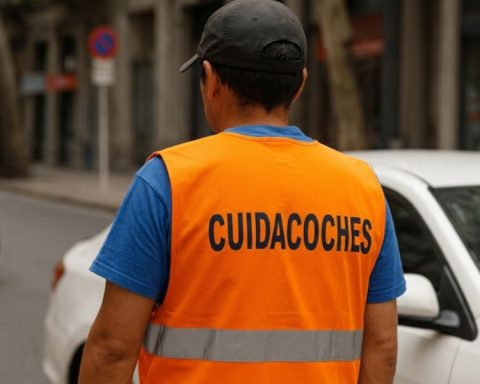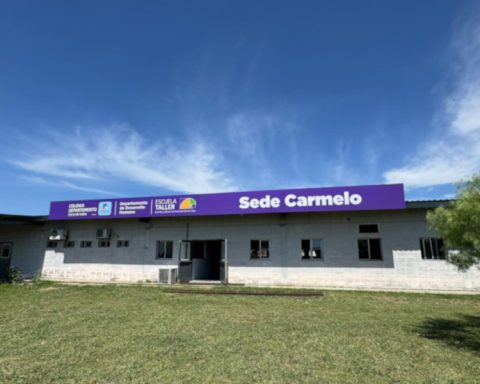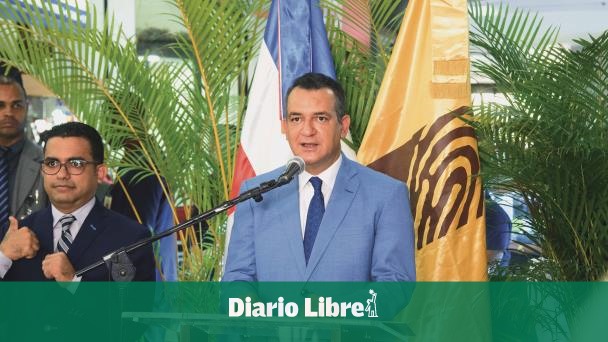The Senate seeks to resolve one of the great problems raised by this Rendering of Accounts: eliminate the additional tax to the Solidarity Fund without affecting, in this way, the resources of the University of the Republic. A budget message for the entity that has meant a “shot at the waterline.”
According to its rector, Rodrigo Arim, the government project represents a loss of $600 million in what is available for investment and expenses. Beyond scarce funds for specific programs achieved via reassignmentthe house of studies sees seven new careers at risk, among other aspects.
The last presences of the university authorities in the Parliament were referred, almost exclusively, to budget issues. “We are always going around the same problem of resources”, lamented the senator William Domenech (Open Council), which wondered if the University should not face a major restructuring.
“I’m not into science,” said Domenech, a lawyer and notary public, “but I have to admit that the world looks to science and that what opens up the future for our young people is not law, notaries, or economics. ”. However, he said he sees that year after year a large number of young people choose precisely those careers.
“I wonder if the University should not do a great favor to young people and tell them that the future is not on the side of letters, but of science,” he said. The restructuring, he explained, would have to be based in part on a kind of vocational guidance and try to get the youth to go to the side of science. Thus, he said, resources could be transferred that he believes “are being used sterilely, as a result of the inertia that one carries in life” to the scientific field that, he remarked, is the future.
Domenech made these comments in mid-August, during the last session of the Senate Science and Technology Committee. It was in the presence of the rector Arim, who reflected on the proposal to recognize that young people react to external incentives. For example, in a health emergency.
As reported in 2021, enrollment in the Faculty of Sciences literally “exploded”. From 400 students who had entered the previous year, it went to 1,400. Although this number was not reached this year, those enrolled are still twice as many as there were before the pandemic. The other place that “exploded,” Arim added, was in health-related careers.
The rector of the university recalled that a similar phenomenon had occurred in Agronomy at the beginning of this century, in the midst of the “soybean and cattle boom” that increased enrollment that had been declining. “The gurises react to the notion that there are external incentives in these matters,” he noted.
Arim said he shared Domenech’s “long-term view,” but he cautioned. “We cannot lie to young people”, said. “Science is the future of humanity and of Uruguay, but in Uruguay there is no one who demands science if it is not the University of the Republic.” Thus, she specified, if 700 scientists graduate per year, there is no entity or company that absorbs them.
The rector reported that a recent survey conducted among graduates showed that the Faculty of Sciences “is not doing well” in terms of job placement. “Uruguay does not have policies to generate the labor insertion of these gurises”, he affirmed. The surveys also showed that the highest level of emigration among university students is among graduates of the Faculty of Sciences.
“I don’t want to have more economists and accountants”he acknowledged. “Now, economists and accountants continue to enter the job market.” In these areas, he maintained, the problem is the reverse: how to get them received, because the market absorbs them. Something that does not happen, he insisted, in science. “What is missing is public policy muscle, with a sense of national sovereignty in these cases,” she said.
For Arim, there is a lack of a national plan that generates incentives for the incorporation of these human resources in the entire productive and social fabric. “We are losing people with this and we are losing opportunities,” he warned. “I am convinced that if we don’t train more people in science in general, we are going to have great difficulties in the future.”
All in all, he specified, the unemployment rate among university students is half the national average. In engineering and economic sciences it is “almost zero”, while in the rest it is between 2% and 3%. “Getting educated at the university level clearly creates opportunities,” he said. “We are not overtraining: we are missing many university students in Uruguay.”
Arim’s reflection surprised Domenech. “My son, the doctor works,” the lobbying senator pointed out. “He still works, he’s brutal,” Arim acknowledged. “There is a dynamic insertion.” According to the rector, although in careers such as Law or some areas related to Economic Sciences today they are paying less or there are some difficulties, the problem is not that graduates, in general, do not have a job.
“There are many young people with employment problems,” Domenech told him. “Of course, but they are employment problems, not unemployment,” the rector explained.
















